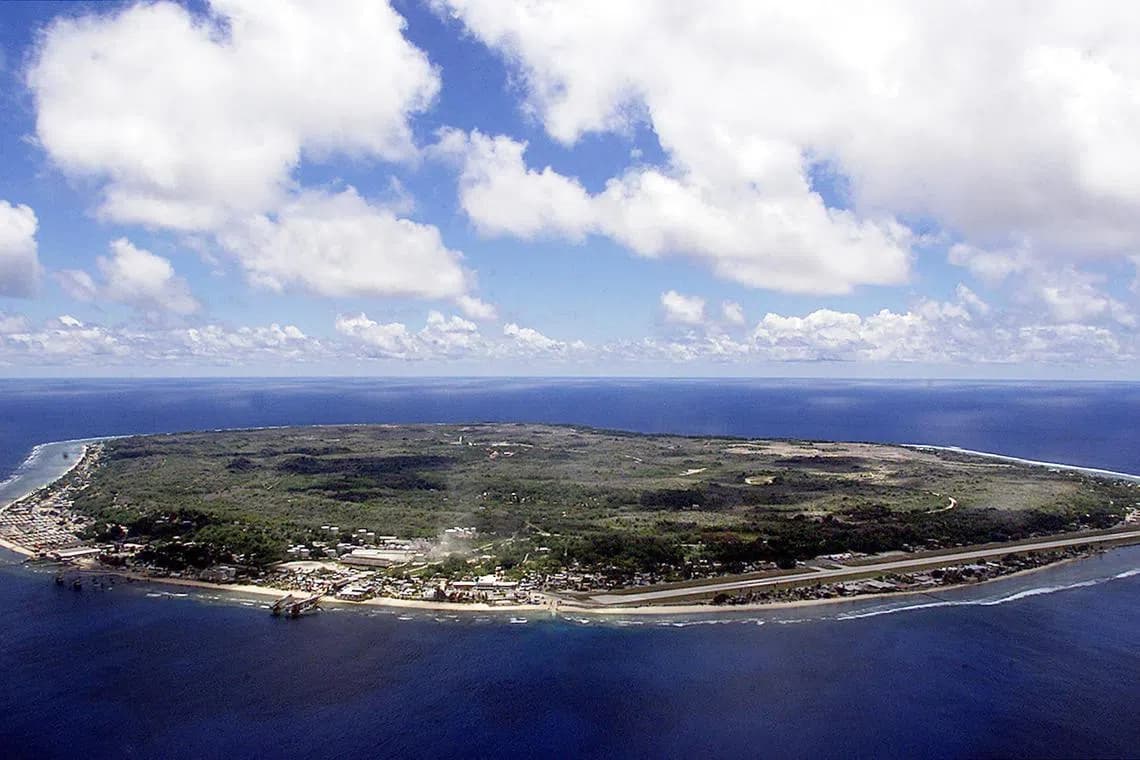We're loading the full news article for you. This includes the article content, images, author information, and related articles.
The agreement, spanning 30 years, aims to relocate non-citizens released after a High Court ruling deemed indefinite detention unlawful, raising global questions on migration management.

The Australian government has initiated a multi-billion dollar agreement with the Republic of Nauru by deporting the first individual from a cohort of non-citizens released from indefinite detention. Australian Home Affairs Minister Tony Burke confirmed the arrival in Nauru on Friday, October 24, 2025, which triggered the first annual installment of A$408 million to the Pacific island nation. The comprehensive deal is projected to cost Australia approximately A$2.5 billion over three decades. The financial arrangement includes the initial A$408 million payment, followed by annual contributions of around A$70 million to a sovereign trust fund jointly managed by both governments to support Nauru's long-term economic stability.
The individuals targeted under this deal belong to what is known as the 'NZYQ cohort'. This group consists of over 350 people who were released from Australian immigration detention following a landmark High Court ruling in November 2023. The court found it unconstitutional to indefinitely detain non-citizens who could not be deported to their home countries, often because they faced persecution, were stateless, or their country of origin refused to accept them. Many within this cohort had their Australian visas cancelled on character grounds after serving prison sentences for criminal convictions. The ruling necessitated their release into the Australian community, prompting the government to seek alternative solutions for their removal.
Under the Memorandum of Understanding, signed in August 2025 by Minister Burke and Nauruan President David Adeang, Nauru will grant long-term visas, reportedly for up to 30 years, to the individuals deported from Australia. This allows them to live and work within the Nauruan community of approximately 12,500 people, rather than in detention facilities. The specifics of the agreement remain largely confidential, a move the Australian government has defended on public interest grounds. However, officials have stated the deal includes provisions for the “proper treatment” of the individuals. The first deportee's identity and circumstances have not been disclosed.
This policy of 'offshore processing' is not new for Australia, but this specific deal sets a precedent for relocating non-citizens already living in the community who cannot be returned to their origin countries. The arrangement has drawn sharp criticism from human rights organizations and legal experts. The Human Rights Law Centre in Australia has highlighted the lack of transparency, questioning whether the deported individual left family behind or requires medical care unavailable in Nauru. In January 2025, the UN Human Rights Committee ruled that Australia remains responsible for the human rights of asylum seekers it transfers to offshore locations like Nauru, stating a country cannot outsource its obligations under international law. Critics argue this new deal continues a policy that disregards these international commitments and exploits Nauru's economic vulnerability. The policy has been described as part of a broader 'crimmigration' model, merging criminal and immigration law, which has been influential but heavily criticized globally.
While this agreement has no direct link to Kenya or the East Africa region, it represents a significant development in international migration management that is watched closely by governments worldwide. The practice of outsourcing migration processing to third countries, as seen with the UK's proposed Rwanda plan, is a contentious but growing trend. This Australian model, involving substantial financial payments to a smaller nation to accept non-citizens with criminal records who cannot be otherwise deported, offers a case study in the complex legal, ethical, and financial dimensions of modern immigration control. It underscores the challenges faced by nations in balancing border security, legal obligations, and human rights, a conversation with relevance to all regions navigating migration flows.
Keep the conversation in one place—threads here stay linked to the story and in the forums.
Sign in to start a discussion
Start a conversation about this story and keep it linked here.
Other hot threads
E-sports and Gaming Community in Kenya
Active 9 months ago
The Role of Technology in Modern Agriculture (AgriTech)
Active 9 months ago
Popular Recreational Activities Across Counties
Active 9 months ago
Investing in Youth Sports Development Programs
Active 9 months ago